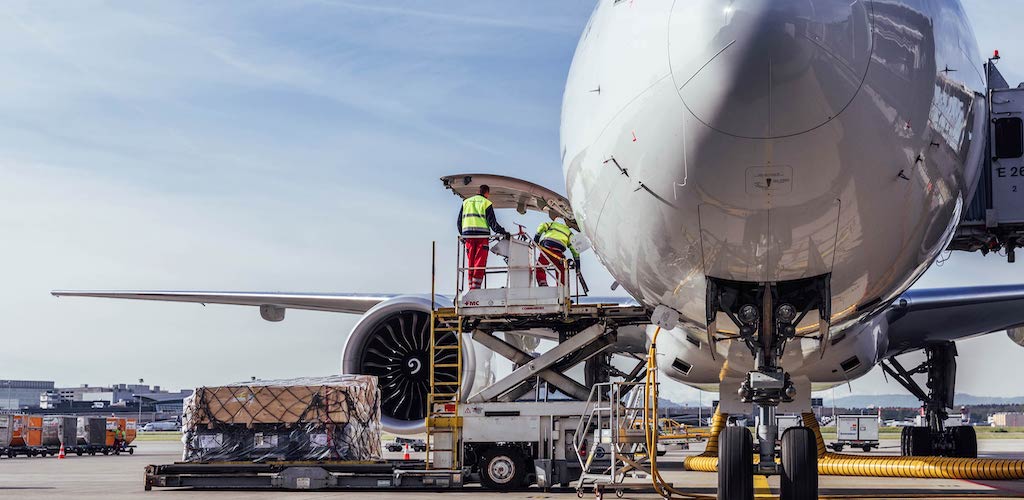Project cargo air freight holds opportunity

Demand for additional air capacity for project cargo India is forecast to grow in the medium term as recovery from the pandemic drives demand for increased breakbulk handling capacity.
Air charter firm Chapman Freeborn recently announced a renewed focus on air charter capacity in India, appointing Malcolm Dsouza, as its new director for Indian operations as part of a strategy aimed at increased breakbulk handling.
“Honestly, I am optimistic about the breakbulk and project shipments ex India in the future,” Malcolm Dsouza, director of Chapman Freeborn India, tells Breakbulk, noting that the main outbound routes for breakbulk air freight from India are likely to remain Africa and South America in the short term with new markets emerging longer term.
Ascendant industry
Indian airports posted 29 percent year-on-year growth in cargo shipments in August this year, with volumes hitting 264,510 tonnes, and this figure is expected to rise and new infrastructure supports roll-out of handling capabilities beyond the current hubs.
“Now the stage is set for air cargo to grow into the ascendant industry of India’s globalized future,” Lewis Burroughs, manager for Aviation at advisory firm ICF states. “In today’s India, we have seen the rapid enhancement of airport cargo infrastructure, digital infrastructure for cargo handling, and the development of collaborative partnership models wherein all stakeholders manage cargo multilaterally.”
The Indian air cargo market in currently mainly concentrated around Delhi, Mumbai, Bengaluru, and Hyderabad, with around 70 percent of cargo volumes passing through these hubs, but this situation is changing rapidly. Lower-tier cities such as Kanpur, Ludhiana, and Bhopal, are forecast to develop as pharmacy and e-commerce demand drives upgrades of their logistics capcity.
“It seems clear that [air] cargo’s moment in the market spotlight has finally arrived,” Burroughs comments.
Sizeable market opportunity
While the origination of the Covid delta variant in India earlier this year caused unprecedented disruption across the supply chain, the outlook is now improving and traditional markets for construction and infrastructure equipment in Africa are expected to rebound next year.
“[Demand] has presently been hit by the Covid situation, as most projects which India supplies to are in Africa and because of Covid the orders are deferred. Most of these project shipments are currently planned by ocean freight and only when there are serious delays do some part-shipments go by Air” Dsouza explains, but adds that current shipping disruption combined with a shift in project requirements suggest that longer term, there is ‘a sizeable market” for airfreight of these kind of commodities.
Dsouza joined Chapman Freeborn last month following over 10 years at Jeena & Company, India’s largest freight forwarder in the global market. He brings over 18 years’ experience working with international airlines, and ten years’ experience in senior management roles in cargo operations. He will oversee development of the domestic brokerage services and build this around a ‘strong and comprehensive’ survey of customers’ requirements.
“We are delighted to welcome Malcolm to Chapman Freeborn. His decades of experience in logistics and aviation will be integral to our growth in India, as we optimise on existing markets and discover the potential of new ones,” Sharon Vaz-Arab, IMEA Regional Director for the firm, said. “Under the leadership of Malcom, we plan to expand our Chapman Freeborn footprint in India on the Cargo, Business Aviation and ACMI verticals.”
The firm is currently working to identify the next wave of relevant projects in India and connect with freight forwarders and project companies involved to discuss air freight as a solution for their break bulk shipments.
Global supply chain
As well as export led project cargo demand from Africa, India is also poised to see growth in inbound shipments from China and East Asia as well as from the US should its position in global supply chains solidify over the next decade.
The rapid development and roll-out of vaccines has highlighted the ability of Indian industry to respond to global challenges, with the country producing the lion’s share of the world’s vaccines and already handling over 50% of total global demand for generic drugs.
The current disruption to global supply chains has highlighted the need to diversify cargo routes and relieve pressure form global choke points as well as underscoring cross-border tensions that can play to India’s advantage.
“Frictions have increased across the world [but] looking towards the future, the outlook is strong,” Brendan Sullivan, IATA’s Global Head of Cargo, comments. “Air cargo is a critically important industry. This pandemic reminded us of that.”
The ability of Indian project cargo sector to capitalise on the restructuring of global supply chains has yet to be proven but Dsouza is confident that the future for breakbulk handling of air cargo in the country is positive: “India is one of the biggest markets in the world. There is so much potential for growth here and I look forward to strategizing how we can expand in this market, including new areas for us, such as private jets and group passenger travel.”
Headquartered in the UK, Chapman Freeborn provides global aircraft charter services and manages subsidiaries: Intradco Cargo Services, Logik Logistics, Magma Aviation, and Wings 24. Chapman Freeborn is an exhibitor at Breakbulk events.

